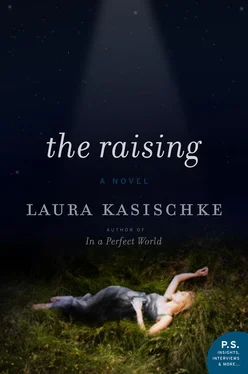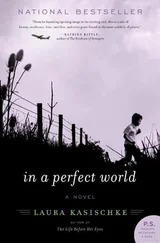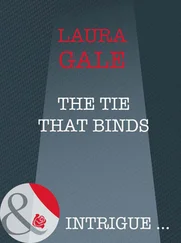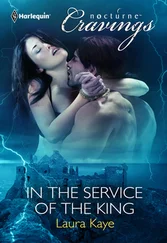Mira waved good-bye to the boys, who squealed, holding tightly to Jeff’s pale, hairy ankles, exposed between his socks and the frayed cuffs of his khaki trousers.
It was unpleasantly cold out, and the clouds were sinister blue things skimming low over the buildings. The students hurrying past her on the sidewalk on the way to class had their heads buried in their parkas, although a few still mysteriously, or brazenly, wore flip-flops. A bicyclist tore through the damp street, tires making the sound of hissing snakes. A man stood in a front yard pounding a stake into the lawn.
A For Rent sign, Mira supposed.
She supposed, too, that soon she’d have to start reading the classifieds and looking at the posted For Rent signs, looking for an apartment, and the thought of this filled her eyes with tears before she even realized she’d thought it.
Clark.
Jesus Christ.
Up in Petoskey, his mother had actually, physically, tried to keep Mira from leaving the house with the twins.
“Mira, Clark left them with me. He’ll be back tomorrow, I’m sure. What am I going to tell him?”
“You’ll tell him that their mother, his wife, came to get them. That she’s taken them home.”
“But, Mira, you can’t just—”
But by that point Mira already had the diaper bag packed. She’d buttoned the twins’ jackets up over their sweaters, and was carrying one child on each hip like two sweet bags of groceries. They’d been so excited to see her that they’d begun to scream, and now, on either side of her, they were patting her cheeks as if to check that they were the real thing. It stung, the patting, but Mira loved it.
Clark’s mother took hold of the sleeve of her sweater and said, “Don’t go , Mira. I’ll have to—”
“You’ll have to what?” Mira asked. She was careful not to raise her voice, which would have alarmed the twins, who, after all, adored their grandmother. “What will you have to do, Kay? Call the police? Tell them the twins’ mother came and picked them up? Or call Clark? I’ve tried that myself. A hundred times. He doesn’t have the cell phone turned on, or he doesn’t have it with him, and what good would that do, anyway? We’ve all got to go home eventually, and the boys need to be with their mother.”
In defeat, it seemed, Clark’s mother let go of Mira’s sleeve, and Mira felt sorry for her. Her hair was grayer than Mira remembered, and it was all combed to one side of her head, leaving a bare patch of scalp exposed. She was wearing a ratty KEY WEST sweatshirt, a place Mira was certain Kay had never been. It broke Mira’s heart, really. Clark’s mother had never been anything but kind to her, and loving to the twins. But she had to go. She had to have her children with her, and she had to work, so she had to take them home.
“I’m sorry, Kay,” Mira said. “And so grateful to you for keeping them, for taking such good care of them.”
Kay swallowed, nodded solemnly, and then kissed each boy, and then she kissed Mira, too, on the cheek, with the same silly smacking sound she’d used on Andy and Matty.
“I love you all !” she said loudly, voice cracking, chin quivering, and Mira found herself crying then, too, and the twins were looking at her tears, wiping at them, seeming sober and astonished, looking from Mira to their grandmother, who walked Mira to the door then and looked out.
Jeff had stayed in the car so as not to be in the way. He had the engine running, and it was making guttural noises, blowing blue smoke out of the tailpipe. He appeared to be, possibly, singing to himself, or reciting something, while staring at his lap.
“Who is that?” Kay asked Mira. “Who is that man?” She said it as if she’d seen a ghost.
“His name is Jeff Blackhawk,” Mira explained. “He’s my colleague at the college. He offered to drive me because, you know, I don’t have the car. Because Clark has the car.”
Clark’s mother nodded slowly at this, as if that all made a peculiar kind of sense, and then she said under her breath, “Is he an Indian?” as if he might be able to hear her.
“I don’t think so,” Mira whispered back. “I haven’t gotten that impression.”
Clark’s mother nodded as if, at least, there was this bit of good news, and then she grabbed Mira’s sleeve again and said, “Bring the babies back as soon as you can. And be careful getting home. Work things out with Clark. I love you, darling.”
“I love you, too,” Mira said, and she looked at Clark’s mother for a long time before she turned with the twins to the door, to the car.
Back at the apartment, after the long drive home, and after Jeff had helped her carry the twins up the stairs (leaving with the tip of an imaginary cap, and a little bow), Mira was feeling so solaced by their return that she hadn’t even thought of Clark. The relief of having the boys in her arms, nursing them, kissing them, smelling their hair and the napes of their necks, was complete, as if she’d been held hostage those days without them, and had just been released. Tears ran down her cheeks and into their hair as she rocked back and forth on the couch and they sucked greedily until they finally fell asleep. Then, she lifted them, put them in the cribs (a difficult feat with two limp toddlers, but they were sound asleep) and then lingered a long time afterward in the nursery, looking down at them in their cribs. Home.
It wasn’t until she was on her way up the stairs to Godwin Hall to meet her class for their field trip to the morgue that Mira realized, fully, that a new part of her life had started, and would continue to be starting, whether she wanted it to or not.
Perry stood in the middle of his apartment and spoke to Craig’s voice mail, leaving him a message (“Where the hell are you, man?”) when he realized that the cell phone he was trying to reach was lying on the coffee table about three feet away from him, turned off. It had been twenty-four hours since he’d seen Craig, and he was going to be late to the class field trip if he didn’t leave that second. “Fuck,” Perry said to the phone, hung it up, grabbed his backpack, and headed for the door.
He was late.
Professor Polson was standing in the foyer with the class already gathered around her. She was giving them some directives—telling them that the university morgue was actually a secured facility, and that it was a special privilege to be allowed to visit it, a privilege granted to them because her research gave her a faculty pass, which she’d managed to have extended to “visiting scholars.” The fact that her “visiting scholars” were actually freshman in a first-year seminar had apparently not been brought to the attention of the morgue director or the hospital security. Yet. And the class needed to provoke no interest or suspicion so it would stay that way. “Okay?” she asked. There were nods all around.
It also happened, she explained, that she was personal friends with the diener (the class snickered at the word, so close to diner , although Professor Polson had defined it for them as “the person responsible for handling and washing bodies”). This morgue’s diener, coincidentally, had worked at a mortuary she’d visited in Yugoslavia, and they’d stayed in touch over the years, and then he had come to the United States.
“If there’s joking, disrespect, theft— God forbid—or any kind of undignified behavior, I will likely never be allowed back with another class. More important, for you, the student or students responsible will fail my course and receive whatever other punishments I can come up with.” She said this lightheartedly, but it was clear from her expression that she wasn’t kidding.
Читать дальше












